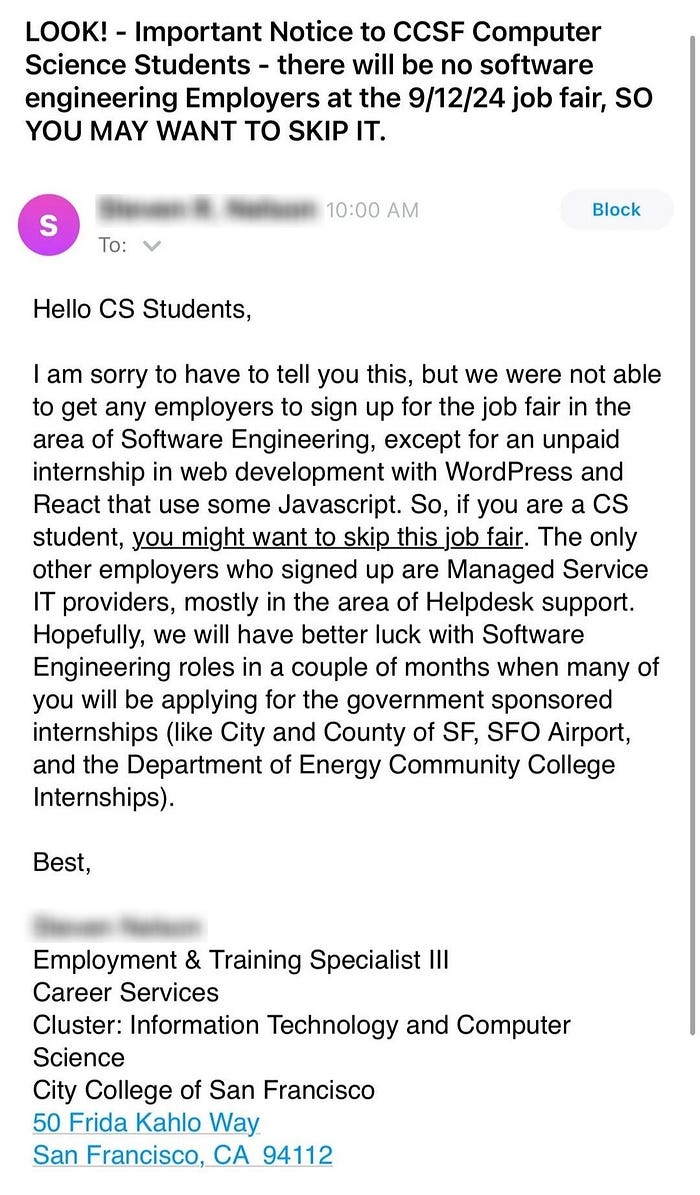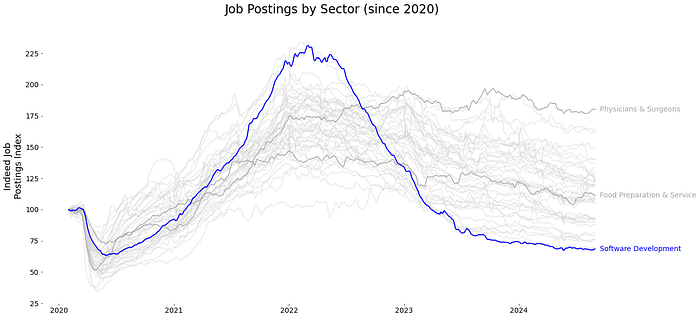Just a few years ago, software engineering was a dream job, with endless opportunities and high salaries for even entry-level developers. Boot camps were thriving, and the industry couldn't fill positions fast enough. But the tide has shifted, and today's market looks very different.
Has the golden era of software engineering come to an end, or is this just a temporary downturn? Let's explore what's changed and the lessons developers need to learn moving forward.
A few years ago, a software engineer friend was looking for a plumber to renovate his home. Due to many construction projects, it was hard to find one. After weeks, he finally found someone who arrived two hours late with an expensive car and gave a shockingly high offer. My friend was outraged, saying these plumbers had become so arrogant and they should save their money since construction is a cyclical industry. Since then, things have changed, but so has our industry.
We had no idea that we would find ourselves in a similar situation a few years later.
I wonder how many times we've been called arrogant behind our backs?
I recently came across a picture on a forum of a San Francisco university sending an email to its students saying that if you are a Computer Science student, you shouldn't bother attending the job fair as no IT companies have signed up.

I haven't verified the source of the picture, but it seems entirely plausible. And no, this has nothing to do with AI. If anything, AI helps, as AI companies are still looking for developers.
Below, you can see how job posting numbers have changed across multiple industries. You can indeed fall the hardest from the highest place.

About two months ago, I applied for around 15 jobs. I've been programming since I was 13 or 14 and had multiple decades of experience in the field, but I only received one response out of the 15 applications, and that one didn't work out in the end.
So what can we do in this situation, and what can we learn from it? If you're a developer with years of experience who has worked like an ant rather than cricket, you probably have enough savings to survive for a few years and wait until things normalize.
You can use this time to recharge, learn new skills, network with others in similar situations, and hope for the best.
You can write articles on Medium. After 6–8 months, you could generate a few hundred dollars per month if you take it seriously. If you're lucky, maybe even a thousand. If you don't need the extra money, do it anyway and invest it all.
Offering tutoring or consultation services is another way to earn extra income. Consider your skills and what you can teach others.
You might consider relocating to a lower-cost-of-living area, especially if you can work remotely. Cutting non-essential expenses, such as unnecessary subscriptions, can also help.
A few years ago, we had a government-sponsored program that helped people reskill through various free training programs. One of my friends earned a carpenter certification. Now, he holds both a PhD and a carpenter diploma. If you come across an opportunity like this, don't hesitate to seize it.
Any profession can go out of fashion, and income diversification is a great way to protect against it.
Many governments follow procyclical fiscal policies, meaning they lower taxes, spend more when things are going well, reduce spending, and raise taxes when things are downturning.
Saving money during good times is essential to surviving the inevitable downturns.
Finally, don't let shortsightedness ruin your perspective. I don't believe this industry is doomed or that everything will end. All cyclical industries experience highs and lows, but when the good times last too long, we tend to forget about the downturns.
I believe there's a high chance that, in a few years, things will return to normal. We need to be prepared to survive the transitional periods.
What tips do you have?

